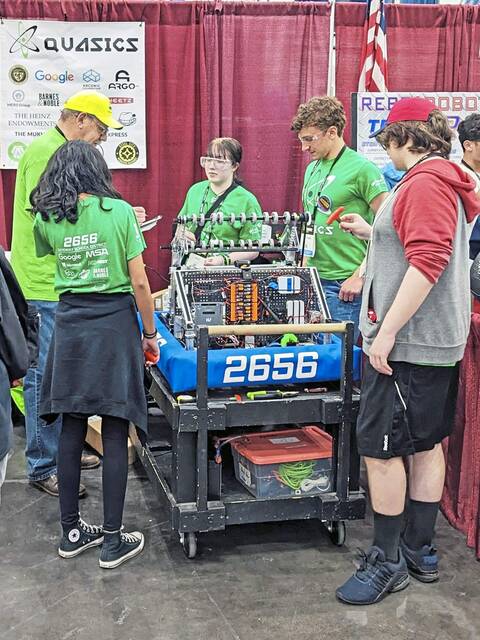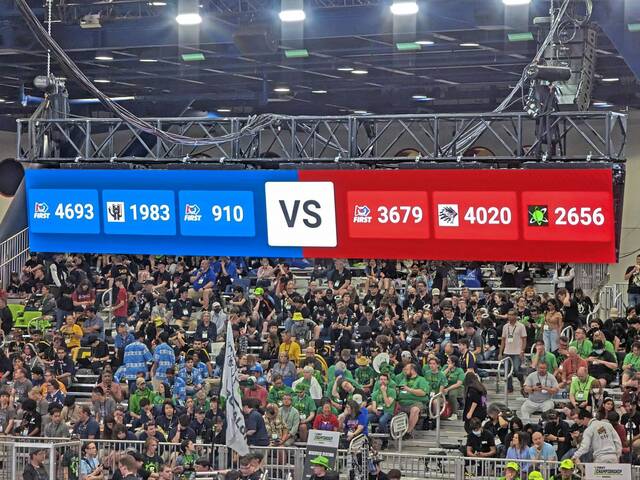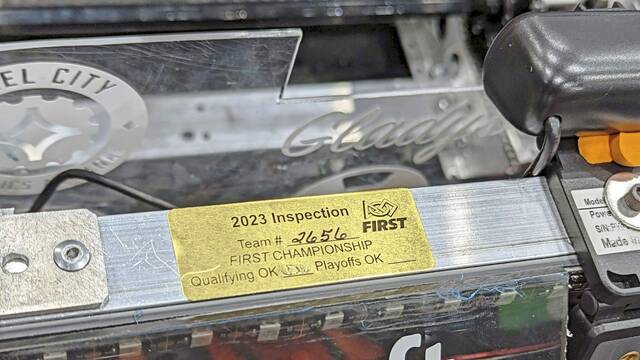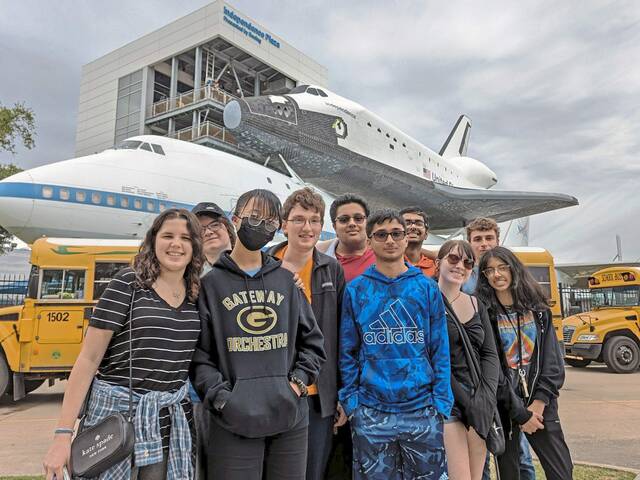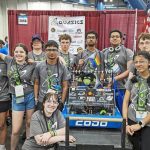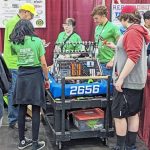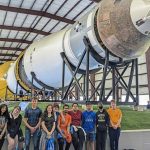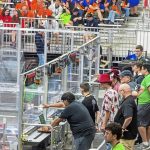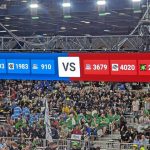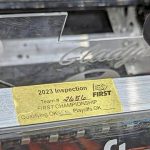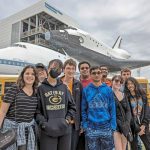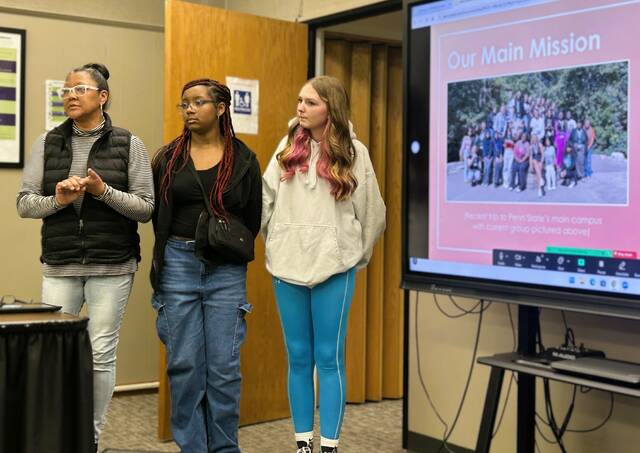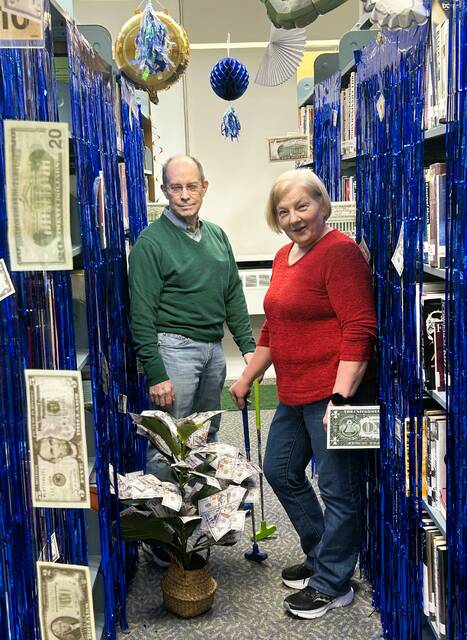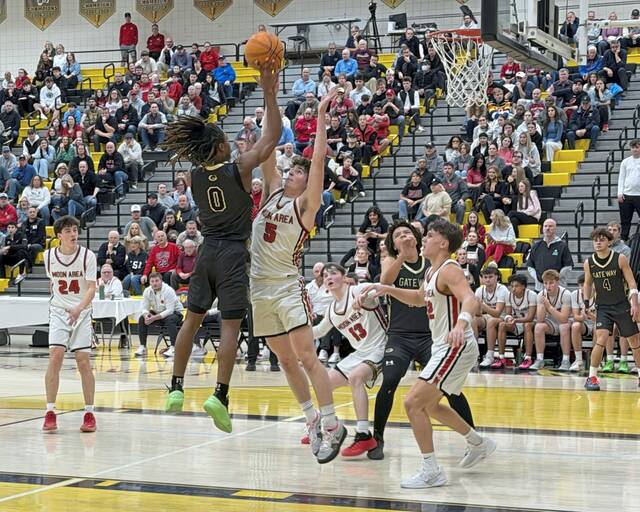They say everything is bigger in Texas, and that applies to convention centers.
Picture the one in Monroeville, which seems sizable enough at 100,000 square feet. Now multiply that by 18 and try to visualize the scope of Houston’s George R. Brown Convention Center.
Gateway High School student Prince Sadam did before traveling there.
“I thought Houston was going to be the size of the world, and it was that and more,” he said about the 1.8 million-square-foot building. “It was ginormous.”
Sadam and fellow members of Gateway’s Quasics Robotics Club, with Sean McMahon serving as head coach, earned a spot in the international championship of FIRST (For Inspiration and Recognition of Science and Technology) Robotics, held in April at the Brown center.
To qualify, Quasics was part of the first-place team at the Greater Pittsburgh Regional competition.
“When we first got there, I wasn’t expecting to win,” Sadam said. “I knew our robot was good, but I thought we had a zero percent chance of winning. We did win. I was super-excited, like maybe the most excited person there, or tied with somebody else.”
About 620 teams took part in the Houston event, during which the Gateway students had the opportunity meet FIRST co-founder Dean Kamen and, while they were in town, tour the NASA Johnson Space Center.
“That was always our dream, to make it there,” Quasics member Salma Mukhtar said. “But I never knew if we could actually do it. And that was probably a once-in-a-lifetime experience for some of us.”
The dream started with a first for the 16-year-old Gateway club: topping the regional field, which this year included of 48 teams. During the early April competition in Pittsburgh, Quasics’ record was so-so in qualifying matches, but the students had a strategy based around what is called the alliance selection.
Basically, the top eight teams in the qualifiers each choose two others as collaborators for the playoffs.
“They want to strategically pick their partners so that they know who can work together well and where they can earn the most points,” Mukhtar said. “Our robot was designed to be a good partner bot.”
Teammate Josh Biehl elaborated.
“If we can be that role player to fill in those little gaps, we figured that we would be able to have more success that way, because we’re not competing with all the high-level people who have a lot more experience,” he said.
As it turned out, Quasics’ partnership with teams from Rochester, N.Y., and Mukwonago, Wis., won two straight matches in the best-of-three final round, earning all involved a trip to Houston.
“There were a lot of things that all came together to help make that happen,” Matt Healy, a nine-year Quasics coach, said. “We qualified Saturday. We had to notify FIRST by Monday at 5, and pay the money. And then eight-and-a-half days after that, we had to be on a plane.”
Healy and his employer, Google, split the cost of the $5,000 registration fee. A GoFundMe drive raised more than $12,000, and Gateway School Board voted to chip in, as well.
Then there was the question of getting Gladys, the 2022-23 Quasics robot, from Monroeville to Texas.
“You could ship it through FIRST, but you have to build a special box and have it ready by a certain time,” Meg Gilmore, another Quasics coach, said. “We knew our buddies were going, and they were like, ‘Hey, we’ll make space in the trailer for you.’”
The buddies are members of Amp’D Robotics from McKeesport Area High School, which qualified for the world championship for the third time in the program’s 19-year history.
“Without them, I don’t know if we would have been able to make this happen,” Gilmore said.
She and other team members traveled by air, her first time since she was about 8, and team member James Richmond took his inaugural flight. The enormity of the George R. Brown Convention Center impressed him during FIRST’s opening ceremony.
“For all that excitement and energy, from one end to the other end, you could barely hear the people on the other side,” he said. “And that was just our area.”
As for competition, Quasics fell short of the playoffs.
“We didn’t get drafted, but that was OK. We were just happy to be there,” Mukhtar said. “It was just a really cool experience.”
Matthew Bandos, who led the coding component for Gladys’ operation, views the trip as a learning experience.
“We were able to see many, many variations of different designs. And even from the software standpoint, I was able to take a glimpse at other people’s code and the way they structured certain things, and they way they ran their autonomous sequences,” he said. “So I think that overall as a team, we were really able to gain a lot of valuable insight as to how we could design what works, and I think this all really carries over to next year.”
That could be another successful one for Quasics.
“No one from our team graduated, so we should be full of experience,” Bandos said. “We should hit the ground running and hopefully have an outstanding season.”



